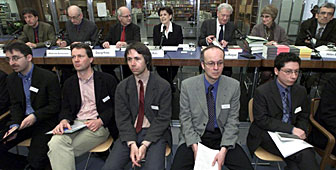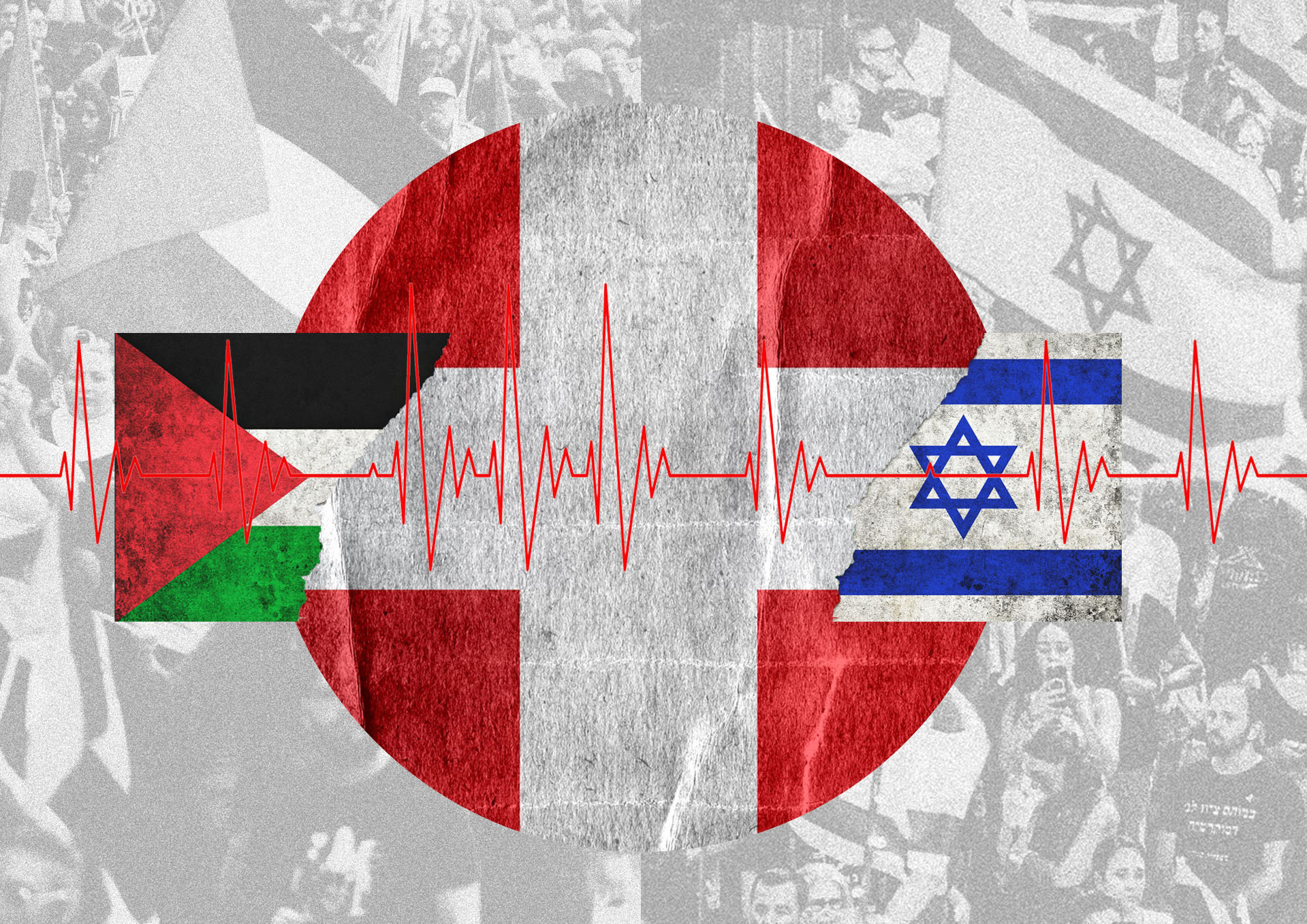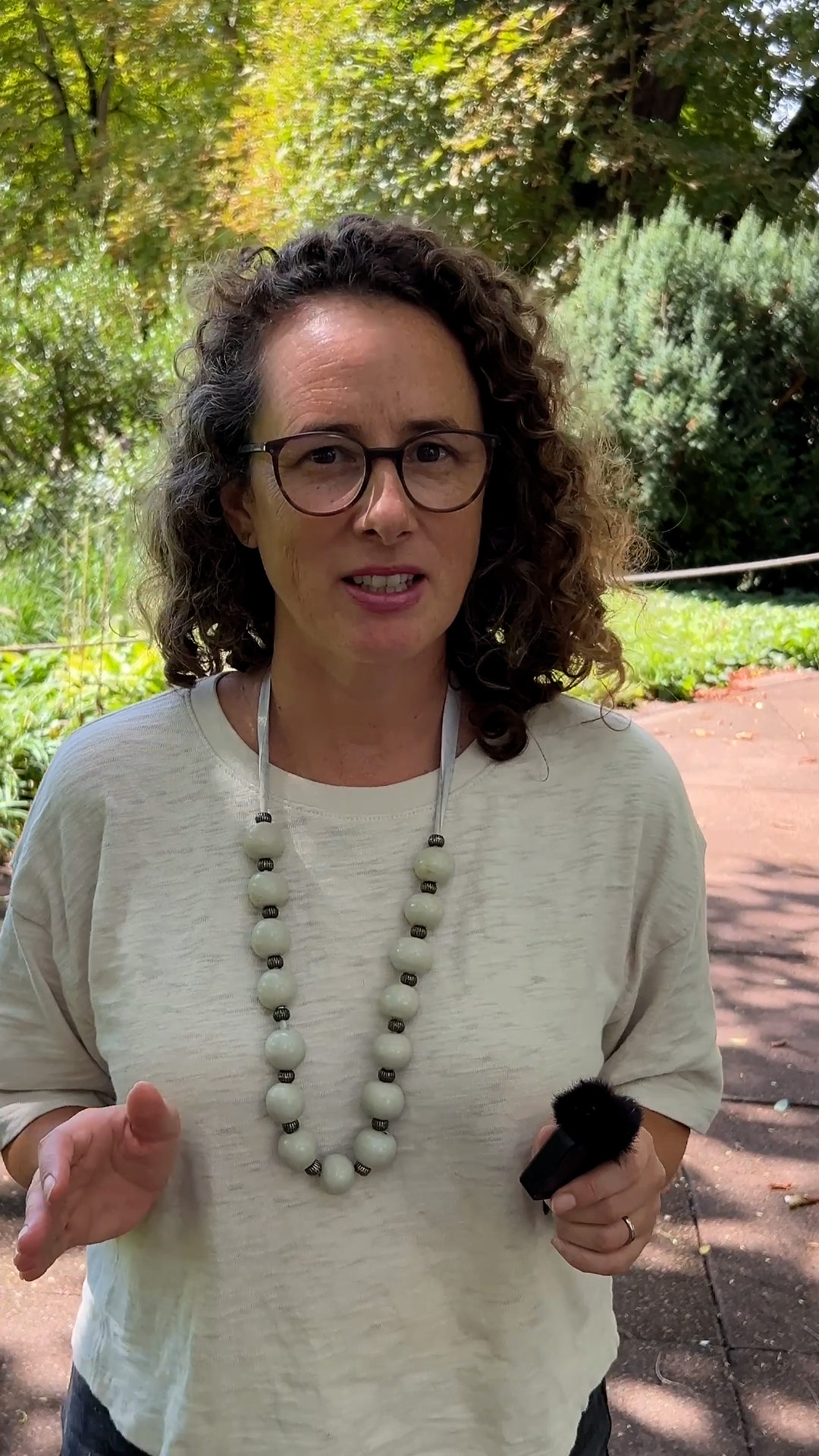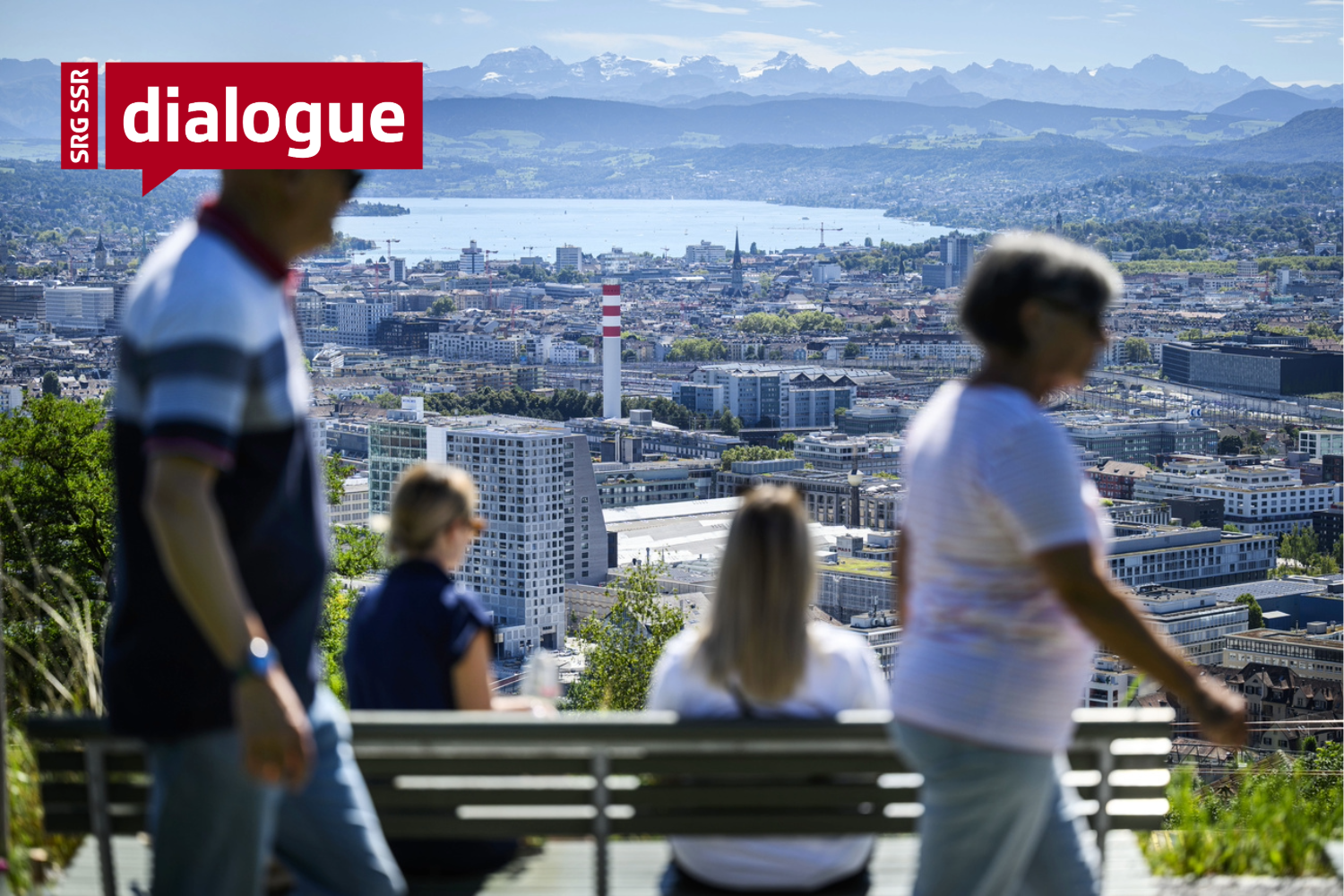
Probe lays bare Swiss wartime role

A five-year probe into Switzerland's wartime past has condemned government policy towards the Nazis and its treatment of refugees.
Presenting its final report on Friday, the Independent Commission of Experts (ICE) said there had been “egregious failures” by the government and private industry during the Nazi era.
The head of the ICE, Jean-François Bergier, outlined three areas in which the Commission had found major failings in Switzerland’s policy during that period – its treatment of refugees, cooperation with the Nazi regime, and restitution.
The ICE was established by a parliamentary decision in 1996 at the height of the Holocaust debate in Switzerland. It was mandated to investigate the volume and fate of assets moved to Switzerland before and during the war.
Refugee policy
Switzerland’s policy towards refugees, at both federal and cantonal level, had been “excessively restrictive and uselessly so”, Bergier said.
“Some refugees had been needlessly turned away, even though the authorities knew what fate was in store for the victims. Others had been welcomed in although their human dignity had not always been respected.”
Border guards turned away at least 24,000 refugees during the Second World War, most of them Jews, according to the Commission.
But that figure has been challenged, most notably by veteran Nazi hunter, Serge Klarsfeld, who puts the number of Jews denied sanctuary in Switzerland at less than 5,000.
The report highlights that despite turning away many refugees, Switzerland did provide sanctuary to some 300,000 people during the war years – around 30,000 of whom were Jews. That compares with 250,000 people taken in by the United States, and 20,000 given refuge in Britain.
In December 1995 the Swiss government officially apologised for its treatment of Jewish refugees during the war.
Cooperation with the Nazis
Bergier said the government and parts of private industry had gone too far in cooperating with the Nazi regime. He said this had conflicted with the principle of Swiss neutrality.
The Swiss government helped finance the Nazi war effort by extending export credits to firms supplying crucial materials to Germany and Italy.
Those credits helped the Axis powers to finance their war efforts by purchasing Swiss arms without having to immediately pay for weapons and materials.
Business didn’t escape criticism either. Reports scrutinising industry’s links to Nazi Germany found that pharmaceutical companies went out of their way as early as 1933 and 1934 to voluntarily “Aryanise” their German subsidiaries by sacking Jewish employees and replacing Jewish board members.
But Bergier pointed out that cooperation with the Nazis had been pragmatic rather than ideologically based. “Businesses saw the chance to make a profit, others, like the Federal state itself, viewed their actions as a condition for survival,” he said.
The report added, however, that contrary to allegations made in the past, there was no evidence that Switzerland’s trade with the Nazis had prolonged the war.
Indeed, the study focusing on trade in war materials found that although Swiss industry had supplied weapons and components to the Nazis, Switzerland played a “less significant role in Germany’s clandestine military procurement than Sweden and the Netherlands or… the Soviet Union”.
Inadequate restitution
The ICE also found that the government and business had failed to properly make restitution to the victims of the Nazis after the war.
Bergier said business and financial institutions did little to help victims “regain possession of their assets”, and that the government’s legal provisions were “insufficient and inadequate”.
Bergier tempered the Commission’s criticism, saying that the failure to act more quickly on the issue of restitution had been caused by “negligence and non-recognition” of a problem rather than outright malicious intent.
A separate investigation, led by a former United States Federal chairman, Paul Volcker, in 1999 found more than 50,000 “dormant” accounts possibly belonging to Holocaust victims in Swiss banks.
End of a marathon inquiry
The final report officially wrapped up the Commission’s five-year probe. In total 25 reports examining Switzerland’s links to the Nazis were produced, with the final seven being released on Friday. The remainder were published last year.
In his address, Bergier stressed that the Commission had not been set up to write a general history of Switzerland during the Nazi era. He said its work had been to look at certain areas where Switzerland’s political and economic decision-makers had failed in their responsibilities.
Many of the findings have provoked sharp criticism, especially from organisations representing the wartime generation. Critics have accused the Commission of portraying Switzerland as a money-grabbing, Nazi-supporting, anti-Semitic country, dismissive of the fact that after 1941 it was completely surrounded by Axis powers.
Bergier said that even though the Commission’s work was now officially over, the final word had not been spoken on many of the issues it had addressed.
He said it was time for other countries to face up to their pasts. “Research must continue. It must now go beyond the limits of national horizons and be conducted on a universal scale.”
by Jonathan Summerton

In compliance with the JTI standards
More: SWI swissinfo.ch certified by the Journalism Trust Initiative







































You can find an overview of ongoing debates with our journalists here . Please join us!
If you want to start a conversation about a topic raised in this article or want to report factual errors, email us at english@swissinfo.ch.